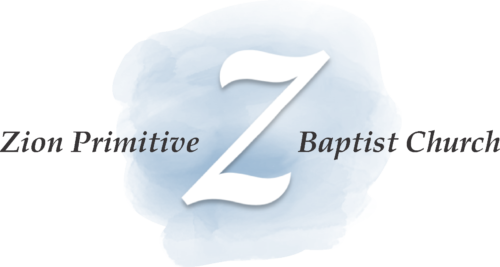Today is Independence Day, a day to be celebrated annually because of the fact that we live in a nation founded on liberty. I am so thankful that the Lord blessed me to be born in this great country, where I am free to live and move as I please. The freedom of speech, freedom of the press, the right to bear arms, the privileges attendant to me personally under the Constitution – all of these are wonderful rights, and we ought never to take them for granted.
But I believe that the primary reason that the United States of America has been so prosperous and blessed throughout the centuries is that she has been a haven for the church for the past 246 years. Religious liberty has been the hallmark of this nation, and – I believe – the basis for its prosperity.
In the article I am sharing below, Elder Mike Ivey makes the point that our religious liberty was championed by an Old Baptist preacher named Elder John Leland. Although Elder Leland lived prior to the time that the name “Primitive Baptist” was used to denote a particular kind of Baptist church, he nonetheless was pastor of a Baptist church that today would be bear the name “Primitive Baptist.”
I find it interesting that, while many people today know little about Primitive Baptists, and sometimes actually denigrate the primitive baptists for being “fundamentalist” and too “old-fashioned” to be relevant, it was actually one of our Old Baptist ministers who played such a prominent role in securing the freedom that we all too often take for granted!
Happy Independence Day, and may the Lord bless you is my prayer!
Elder Chris McCool, Pastor
Role of Elder John Leland in Securing Our Freedom to Worship According to Conscience
by Elder Michael Ivey
Freedom to worship according to conscience was a pivotal issue in the ratification of the Constitution. Initially, many Baptists, including Elder John Leland, opposed its ratification. They believed it did not adequately protect religious liberty. Elder Leland was placed on the ballot as a candidate representing his district in the Virginia delegation to the Constitutional Convention. If elected. his stated intention was to vote against ratification. Because of his influence among the Baptists and the great number of Baptists living in Virginia it seemed likely Elder Leland’s opposition to ratification would sway the Virginia delegation to vote against ratifying the Constitution.
However, this all changed a few days before the election when James Madison paid a visit to Elder Leland. Madison favored ratification and was running against the Old Baptist Preacher. He assured Elder Leland if elected he would support an amendment to the Constitution that specifically insured American citizens could freely pursue religious expression and duties according to conscience and without governmental restrictions. With Madison’s word Elder Leland withdrew his name as the opposition candidate and encouraged Baptists to vote for Madison. His influence among the Baptists greatly assisted Madison’s election.
At the time it was believed the Constitution could not be ratified without Virginia and Virginia would not vote to ratify without the support of Elder Leland and the Baptists. In a letter by Governor G. N. Briggs dated April 15, 1857 the Massachusetts governor recounts a visit he and his wife had with Elder and Mrs Leland some years earlier. A copy of the letter is available at: http://baptisthistoryhomepage.com/leland.john.annals.1860… He wrote the following concerning Elder Leland’s involvement in securing religious freedom for Americans:
“In the course of the afternoon, I told him that I had recently seen in the public prints an extract from an Eulogy delivered by J. S. Barbour, of Virginia, upon the character of James Madison; that Barbour had said that the credit of adopting the Constitution of the United States properly belonged to a Baptist clergyman, formerly of Virginia, by the name of Leland; and he reached his conclusion in this way – he said that if Madison had not been in the Virginia Convention, the Constitution would not have been ratified by that State; and, as the approval of nine States was required to give effect to this instrument, and as Virginia was the ninth State, if it had been rejected by her, the Constitution would have failed; and that it was by Elder Leland’s influence that Madison was elected to that Convention.”

